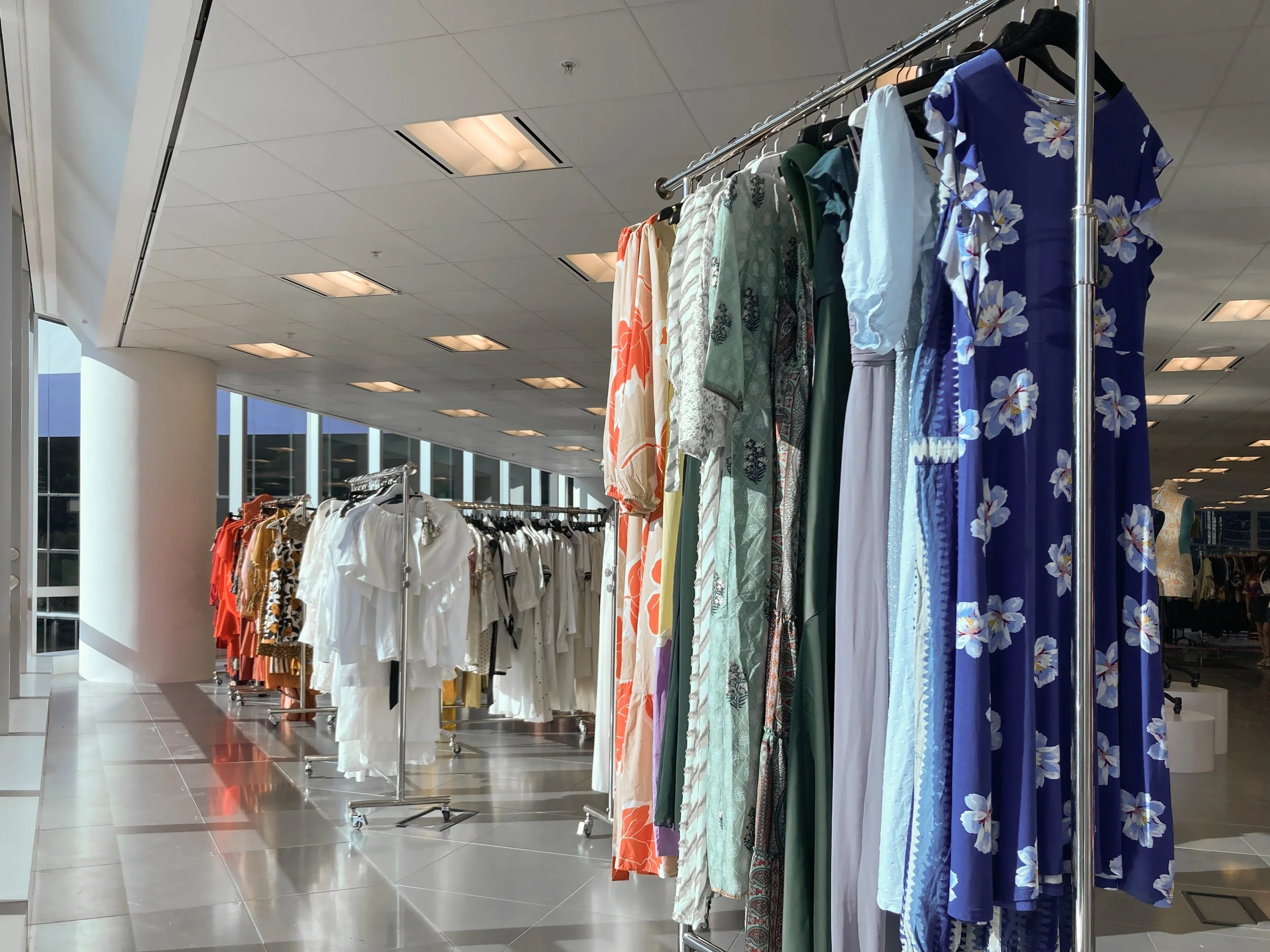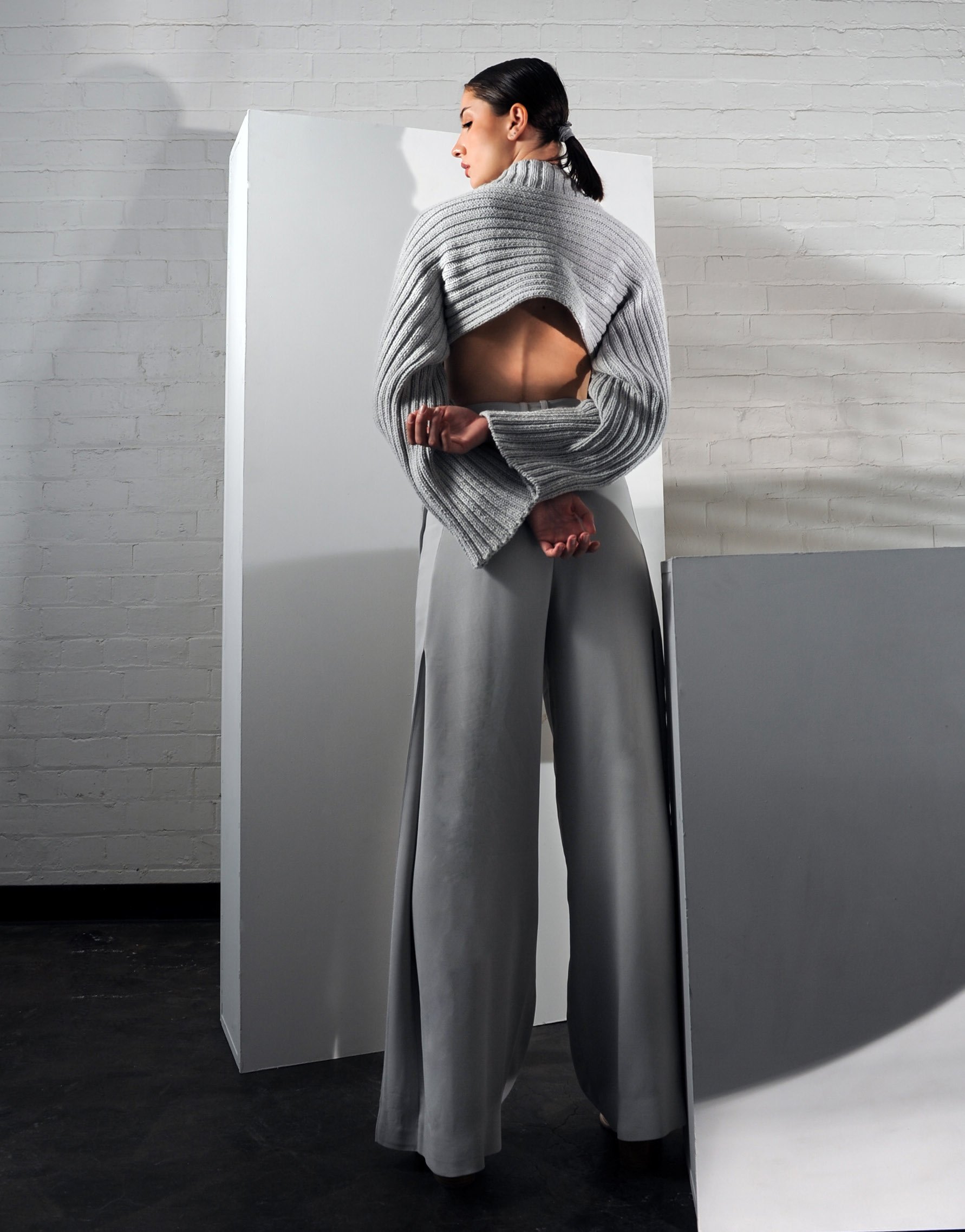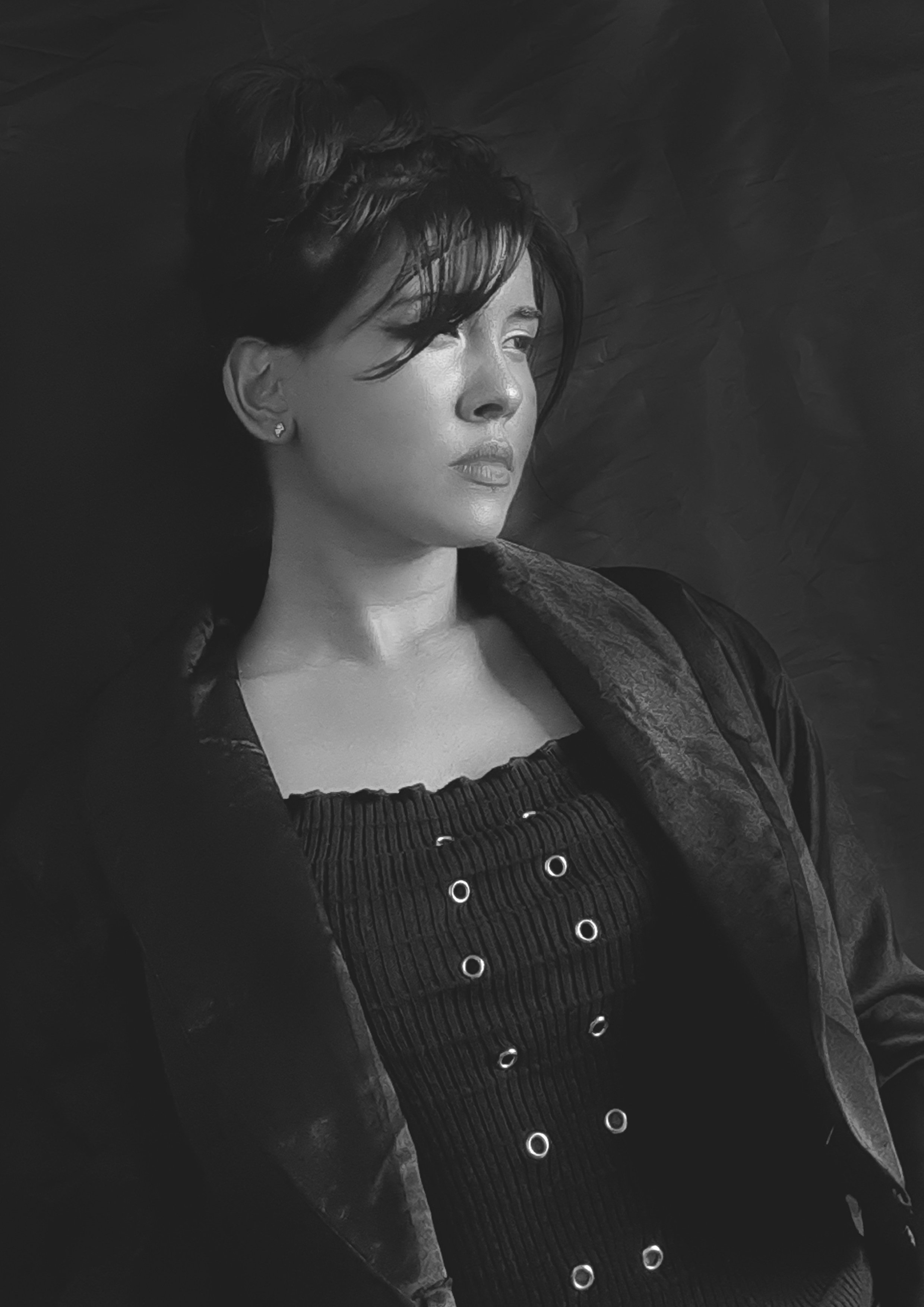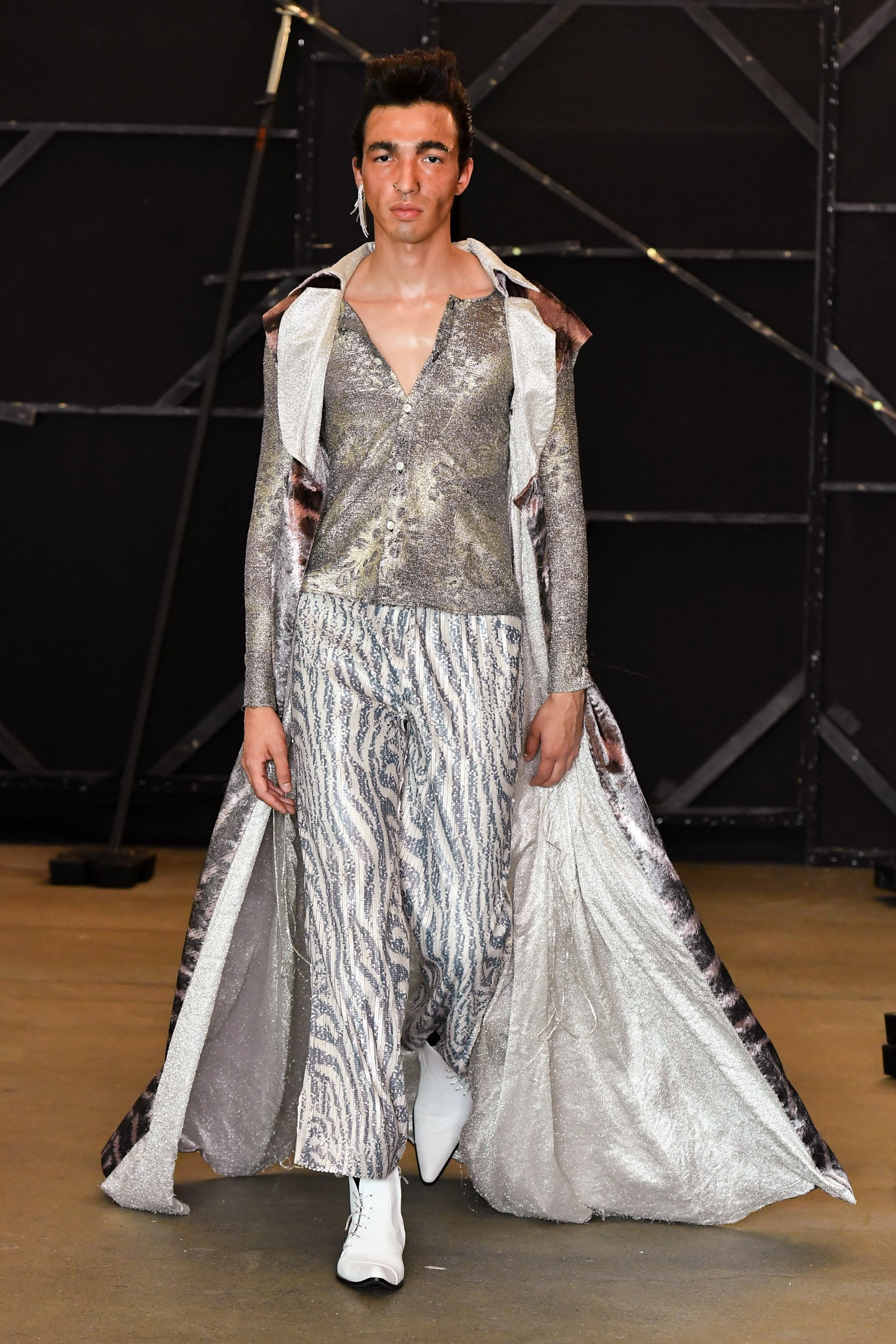Micaela Clubourg

Micaela Clubourg
SPAIN
“Why do we have to label our bodies in one size? Why do we have to discard a garment if we change sizes over the years?”
Dressing frustrations were the spark for Micaela Clubourg’s desire to design. Observing that modern clothing was often made for limited body shapes, she began to imagine how garments could instead be made to fit the body over time, as it naturally changes shape.
“When I applied for an internship, I had the opportunity to see how the fashion system works up close. I saw workshops in their worst conditions and pillars of garments despised by both producers and consumers,” shares the designer, who holds a degree in Fashion Design from the University of Buenos Aires, Argentina.
Micaela’s collection ‘Back To The Roots’ seeks to reach a universal audience through adaptable, versatile garments that can stand the test of time. She combines the straight lines of oriental geometry with the organic lines of Latin American handmade knits, and sources textiles such as cotton and linen from local industries. They are then coloured with natural dyes from food waste such as coffee, tea, and onion peel.
The designer’s environment also influences her work. Micaela reflects on seeing unused fabrics thrown away in her neighbourhood tapestry stores, and her grandmother teaching her to embroider, a skill she refined during the pandemic. Her collection is inspired by a desire to recover the ancestral, the handmade, and the decelerating of consumption and production.
All her trimmings are made from recycled plastic, processed from containers of dulce de leche (milk jam), a popular confection in the designer’s native Argentina. Without an industry to recycle the containers, Micaela sought out an NGO of product designers to come up with a way to process the plastic, heating and reinjecting it into buttons and trims.
Micaela also made regenerated yarn with recovered industrial cotton waste, tearing the fabric with knives to separate the fibres, and respinning them. Since the resulting fibres were much shorter than those of typical virgin cotton, she mixed them with other natural fibres to create a twisted and durable yarn that could withstand the tension of the looms.
Having moved from Argentina to Barcelona, Spain, Micaela is excited to discover opportunities in a new continent and collaborate with international designers. She recognises that while no creation can be perfectly sustainable, it is important to keep striving to make a positive impact every day. “I hope that in the near future we will be facing the next fashion revolution: the evolution of values.”
Congratulations to Redress for successfully organising the Redress Design Award 2022.
We would like to thank all of our sponsors and partners, without whom the Redress Design Award would not be possible.
Tanja Wessels challenged herself to not buying a single item of new clothing. Read her tips on how you can do it too.
The Redress Design Award is more than just the world’s largest sustainable fashion design competition.
Dive into our photoshoot shining a new light on the future creative frontrunners.
See the stunning looks from the finalists’ collections in our first ever lookbook, professionally styled and shot in studio with Farfetch.
Discover what Redress Design Award alumni have been accomplishing recently, from fashion weeks to master’s collections, publishing research, brand collaborations, and more.
Ashutosh Panda found inspiration for his sustainable collection by looking to the stars — specifically, the magnetar, one of the most powerful neutron stars of the universe.
As a Latino living in Tokyo, Japan, Cris Miranda discovered the beautiful craftsmanship of the kimono and admired its deep cultural meaning and high quality fabric.
For designer Drina Marco, the Spanish word “monda” — meaning “fruit peel” — was the first layer to what would become her sustainable collection.
Federico Badini Confalonieri has always valued nature and the environment. When he learned of the massive issue of microplastics in fashion, he knew he had to find a way to address it.
Showcasing an ability to make something extraordinary out of the ordinary, for her collection Lívia Castro turned to a wardrobe staple: jeans.
When a transgender friend experienced cyberbullying, Nawoda Bandara decided to show solidarity through design.
Seeing fashion companies abandon their garment and fabric samples without much care raised alarms for Patrick Lam.
The collapse of Meethotamulla, a massive garbage dump, on homes in Colombo, Sri Lanka, killed over 30 people, including children — and was a turning point in the life of designer Ruwanthi Gajadeera.
Reflecting the competition’s creative legacy of revaluing waste, the editorial photoshoot of the Redress Design Award 2022 unveils a warehouse of renewed wear to showcase our finalists’ looks.
Since the approval of the EU Green Deal in 2019, the European Union has emerged as the world’s leading policy maker on sustainability issues.
After winning the Redress Design Award 2021, Jessica Chang immediately joined the Timberland design team in China, working remotely to collaborate on their upcoming Lunar New Year 2023 collection, ‘Year of the Rabbit’.
Shop or browse the latest sustainable collections from Redress Design Award alumni brands.





























